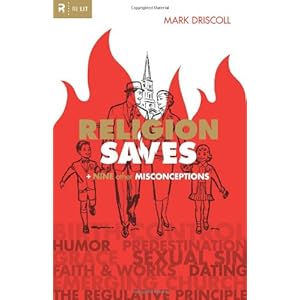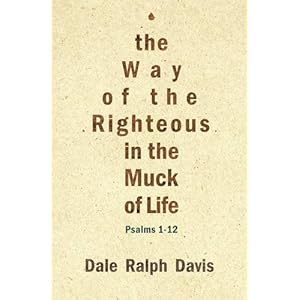Have you ever noticed that sometimes small things can be very powerful? Just take the mobile phone, for example. Fairly small, and yet incredibly powerful. I hope you won’t, but you could be surfing the internet, checking your emails, receiving texts, looking at Facebook, playing games and a whole lot else - all on something very small. As well as being powerful, though, small things can also be dangerous.
I don’t know if you have flown recently, but if you’re wanting to take liquids onto the plane in your hand luggage, they have to be in clear bottles of 100 ml or less - terrorists having perfected very powerful and dangerous explosives in such small amounts. Small, and dangerous. Or think of a match. There’s the old saying that one tree can produce a thousand matches, but it just takes one match to destroy a thousand trees. Small, and dangerous.
The thing is, though, that each of us have something so very small in proportion to our body, and yet it’s very dangerous. It can get us into lots of trouble. Tonight, we’re going to think about the danger we face, and how the gospel of our Lord Jesus can help us.
You shall not bear false witness against your neighbour. Tonight we come to the ninth commandment, and we’re confronted again with how we use our words, the danger of the tongue. You see, the Ten Commandments aren’t just a random arbitrary list of things; it’s not that there was some lottery where lots of good suggestions were thrown into a hat and the first ten out became the Ten Commandments.
No, the Ten Commandments were given to the people of Israel by God himself, after the people had been rescued from their slavery in the land of Egypt. God speaks directly to the people, so that they are afraid, and don’t want to hear the voice of God any more - they send Moses up to receive the rest of the Law.
So the Commandments are God’s directions for living, the basis of the whole Law, and they are perfectly designed. Look with me at the Ten Commandments (p 73). The first two (No other gods, no idols) and the last one (no coveting) are about your thoughts; the third (not taking name of Lord in vain) and the ninth (no false witness) are about your words; the fourth (Sabbath) and the sixth (no murder), seventh (no adultery) and eighth (no stealing) are all about your actions; and right in the middle is honouring father and mother.
So just as we saw in the third commandment, that we are not to take the name of the Lord in vain, either by using God’s name in flippant ways or as a swear word; so now we’re challenged again about our use of words. The original context of not bearing false witness seems to be in the court scenario, of not telling lies about your neighbour, but I want to expand that slightly into two related categories: how you speak of your neighbour; and how you speak to your neighbour.
So how do you speak of your neighbour? The commandment immediately takes us to the court setting, where witnesses are required to tell the truth, the whole truth, and nothing but the truth. You can imagine the problems that would arise if false witness is given. In fact, you don’t even need to imagine it, because we see it far too often, even to this day. Over in Scotland, a former MSP has been facing perjury charges because he allegedly lied in court during an earlier civil case relating to his private life.
But most of us aren’t in court very often. Does that mean we aren’t affected by this commandment, that we can carry on regardless? Think for a moment - do you speak of your neighbours even when you’re not in court? Do you talk about them to others?
What is it you say? Do you simply report facts, or do you embellish the details, passing on the gossip, or share a matter for prayer?! You see, we can bear false witness in the way we talk about other people even if we’ve never been in court. Did you hear about those people in number 22? Even in the church, gossip can flourish so easily, a dangerous problem of the tongue that James describes as ‘a fire, a world of unrighteousness... setting on fire the entire course of life, and set on fire by hell.’ (James 3:6).
No false witness - we hear the word of God, and yet perhaps we aren’t challenged or troubled as we should be. You see, if we’re good with words, we’re likely to try to minimise our own faults and sins while maximising someone else’s. We downgrade our own lies, by rebranding them as fibs, or white lies, and sure, doesn’t everybody do it!
Why is it we lie? It might be self-preservation (to make life easier for yourself if you’re asked a difficult question, or are afraid to tell the truth); or self-interest (to make someone else look bad and to make yourself look good; or self-deception (as you make yourself believe that the lie is actually the truth). Our lies are mostly self-serving, centred on yourself, which is the very definition of sin. We try to bend or break the truth for our own interests and desires. It’s perhaps becoming even more of an issue in these postmodern days, when capital T truth is denied, and everyone has their own truths; their own version of events which is right for them.
Yet it’s clear that there is such a thing as capital T truth - the Lord Jesus was full of grace and truth, indeed more than that, he is the truth. In the face of truth, all of us are found to be liars.
Our reading from Colossians will, I trust, help us to not only speak of our neighbour, but also to our neighbour as well. And with the tongue, as with every other part of our life, it all comes back to who we are, and what God has done for us. Throughout Colossians 3, there are a couple of contrasts going on, and grasping these will help us to see how we should use our tongues as Christians.
The first contrast is between the things that are above (1) and the things that are on earth (2). Those earthly things are spelled out in verse 5 - the variety of sins and wickedness, such as sexual immorality, impurity, passion, evil desire and covetousness. But Paul is saying that rather than setting your heart and your mind on these things, we have to put them to death. Instead, we set our minds on the things that are above, heavenly, good, Christlike.
Paul says that we are in Christ, that Christ is in heaven, so in a sense, we’re already in heaven, so it’s not fitting to continue to live as if we were sinful on earth. We are in Christ because we are united with Christ, have put our trust in him, believed in him, and through faith, have forgiveness of our sins.
But more than that, and this brings us to the other big contrast, we are so changed that we can talk of our old self and our new self. Look at verse 9, and we’ll see how Paul addresses both this theme of the new self replacing the old self, and also our very theme of not lying: ‘Do not lie to one another, seeing that you have put off the old self with its practices and have put on the new self, which is being renewed in knowledge after the image of its creator.’ (3:9-10)
Do you see what Paul is saying? The reason we don’t lie as Christians is because our old self, the way we were before we were converted and made new, all that has been put off. It’s like an old, worn, filthy, horrible jumper. You’ve taken it off and thrown it away. Instead, you’ve put on a new, clean jumper. It’s the new you, the new creation, so that it’s no longer appropriate or right for you to lie to those around you.
I’m not sure if you’ve heard or not, but there’s going to be a Royal Wedding next year - actually, on my birthday, but that’s another story. At the minute, Kate Middleton is just Kate, but following the wedding, she’ll be Princess Kate (or will it be Princess Katherine?). She’ll be part of the Royal Family, the wife of our future King, and so things will be expected of her. Life will completely change for her.
In a similar way, we have been changed, given a new self, and so we’re called to live up to our new self. We’re not the finished article - we’re still ‘being renewed in knowledge after the image of its creator’. Renewed in knowledge - becoming more like Jesus as we come to know Jesus better, turning away from those earthly desires, living like a citizen of heaven, looking to heaven, from where Jesus will appear so that we appear with him in glory.
Think of the ways you use your tongue. The words that you say to others, and about others. Are you speaking the truth? The rest of Colossians 3 gives us some positive examples of how to avoid lying, to speak truth, and to be positive in our words.
Forgiving (13), being thankful (15), teaching and admonishing one another the word of Christ (16), singing psalms and hymns and spiritual songs (16), praising God, all of which leads to that great summary statement in verse 17: ‘And whatever you do, in word or deed, do everything in the name of the Lord Jesus, giving thanks to God the Father through him.’
Let’s pause for a moment or two, considering the ways in which we use our words, confessing those times we have failed to speak the truth, and resolving to turn, and speak the truth in the name of the Lord Jesus.
This sermon was preached in St Elizabeth's Church on Sunday 28th November 2010.







